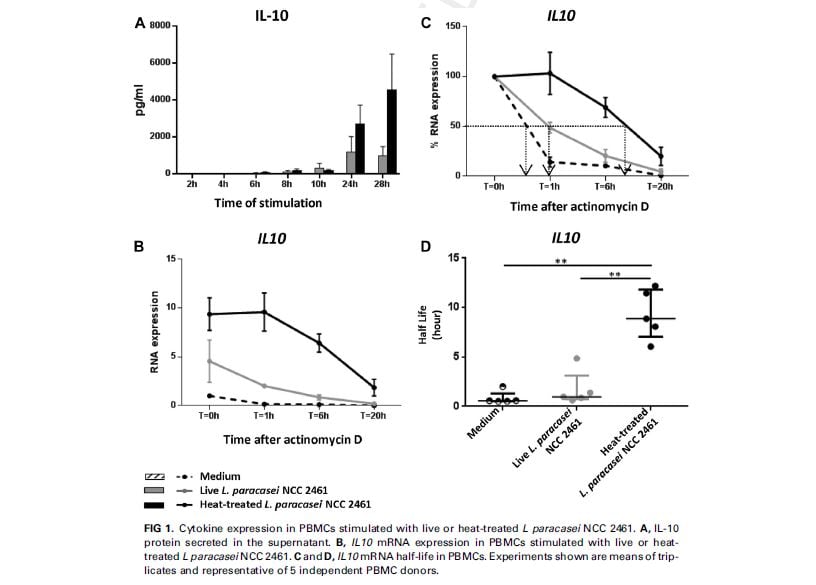The study, published in the Journal of Allergy and Clinical Immunology, found the probiotic strain Lactobacillus paracasei NCC 2461 can deliver immunity benefits when heat-treated and existing in a kind of zombie state – neither dead nor alive.
Lead researcher Dr Carine Blanchard, from the Nestlé Research Centre, told us the zombie-like "non-replicating" probiotic status could not be achieved to an efficacious level with all probiotic strains.
“We tested several strains and actually when you heat treat strains for a lot of them the pro-inflammatory signalling goes down …and IL-10 production increases so they move toward a more immune-regulatory profile, so you can change the way the probiotic influences the immune system,” Dr Blanchard said.
“But what is interesting is that it is really dependent on the strain; some strains don’t change at all when you heat treat them but not always with the same potency.”
Dead, but alive…
Dr Blanchard and her team found the zombie heat-treated form of the probiotic acted more efficiently via an epigenetic mechanism to produce more of the immune system regulating protein, interleukin-10 (IL-10), although the non-heat-treated probiotic also had a positive effect on expression of the protein, via its associated gene.
The researchers attributed this difference to the zombie probiotic’s stabilising influence on genetic material like microRNA.
“Scientists used to think that microRNAs were inert until 10-15 years ago when they discovered it was a potent regulator of gene expression. Here we have published a very mechanistic paper showing that these microRNA are differently modulated by live and non-replicating probiotics.”

Nestlé earlier this year put €18m into the EpiGen Consortium, a multi-partner project exploring epigenetics – the science of how environmental factors like diet affect gene expression.
Nestlé uses Lactobacillus paracasei NCC 2461 in infant formula, fermented drinks like Chamyto in Brazil, and nutrition drinks like Nutren Optimum.
Dr Blanchard said another advantage of using heat-treated probiotic strains was increased shelf-life.
The World Health Organisation (WHO) defines probiotics as "live microorganisms, which when administered in adequate amounts confer a health benefit." Dr Blanchard said the fact heat-treated probiotics were technically dead was not a challenge to this definition, as they were in fact not technically probiotics but heat-treated nutrients sourced from probiotics.
Much further research was underway at the Nestlé Research Centre to better understand why "two strains that are so similar in classification may have completely different reactions."
Heat-treated probiotics, she said, could be cheaper than other probiotics because they required "no treatment to keep them alive".
Some of the probiotic research going at the Centre was tightly focused on winning the European Union's first probiotic health claim.
Source:
Journal of Allergy and Clinical Immunology
Published online October 15. DOI: http://dx.doi.org/10.1016/j.jaci.2015.08.033
“Live and heat-treated probiotics differently modulate IL10mRNA stabilization and microRNA expression”
Authors: C. Blanchard et al
Pre- and Probiotics free online event – November 17
Invested in prebiotics and probiotics? Sign up to our online event on November 17. It’s free…click here to join your peers there.
